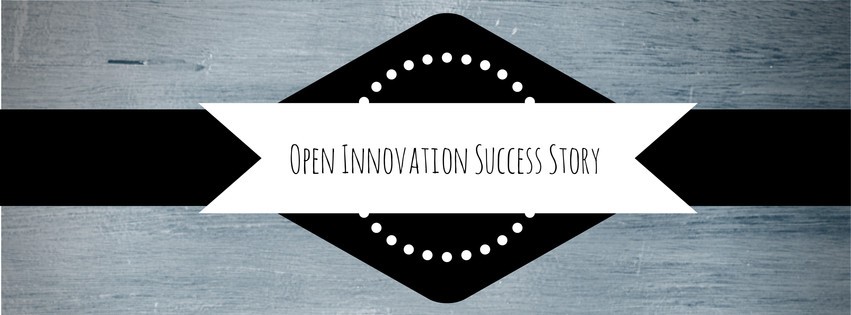The interview of Justo Puerto Albandoz
Open innovation platforms are a great success when it comes to bringing experts and companies together so that they can innovate. We got the opportunity to interview Justo Puerto Albandoz , a professor of operations research at the University of Seville, Spain, who has a research group, Nuevos desafios de la matematica combinatoria, that worked together with a company X ( information of the company can’t be disclosed ). The two meet through the ideXlab open innovation platform. Here is the success story of open innovation told to us.
1.What is your domain of expertise?
Our domain of expertise is the analysis and design of complex networks. This includes location, optimization of supply chain networks and other relative subjects. These problems involve a series of different fields that lie within applied mathematics. We have some expertise of analyzing different networks like technological networks, some biological networks, information networks and social networks. Our major expertise is in the analysis of technological network essentially distribution networks, routing problems and the likes.
– Why is it important?
The study of networks, in the form of mathematical graph theory, is one of the fundamental pillars of discrete mathematics. Typical network studies in sociology involve the circulation of questionnaires, asking respondents to detail their interactions with others or in logistics the organization of routes, schedules and timetables of personnel vehicle fleets of jobs in production plants. One can then use the responses to reconstruct a network in which vertices may represent individuals and edges the interactions between them. In the same form, the optimized plans of actions are used in logistics networks to increase benefits or reduce costs. Typical social network studies address issues of centrality, connectivity and optimization. Our focus is twofold to consider the design of networks seeking for amenable properties that allow effective optimization of several aspects on those structures and to shift to the consideration of large-scale statistical properties of large scale networks.
– Where does it apply?
Our expertise and methods can be applied to solve problems of many kinds in different complex structures. Specifically, they are directly applicable to Social networks, Information networks, Technological networks, Biological networks and Logistics networks.
2. Why is it sometimes difficult to get your expertise known and recognized by industry players?
Our role is basically teaching and doing basic research so our communication channels remain around the academia people who are working in the same environment as us. The only way to contact industrial partners is either by chance or by collaboration with partners we previously contacted. Usually we are in contact with companies where former students are working. So the possibility to work with industrial partners is very limited.
– How did ideXlab help?
IdeXlab put us in contact with an industrial partner that was looking for a solution for a particular problem that was exactly in our field of expertise. Without this contact it would have been impossible to work with them. We are in the south of Spain in Seville and our partner is a company working in France.
3. Does the university or the government encourage you to work with the industry or is it your own initiative?
There are no such initiatives. In principle, there should be some incentives for us to work with industries because this produces a return that goes into the universities. But in terms of promotion in the universities, most of the time, it isn’t by industrial contract but by technical publication. So if you are a scientist that is looking for better positions in the universities then there aren’t real incentives for doing contract with industries. But on the other hand, when you are coordinating a big group of researchers or a group of people who have achieved some degree of seniority, there is some incentive for you to do contracts with industries because you get in touch with actual problems that, in fact, help you in developing new techniques and new research that will go into the technical knowledge in your field.
4. What did your project entail with the company we put you in touch with?
I can only say a few words about this because we have a non-disclosure contract with the company. But I can talk about the field of collaboration. This company asked us to develop a new management tool for the control and design of future metro networks. We developed a tool that was based on an optimization framework that was able to cope with the different types of metro networks and could be used in the future to improve management and control of complete networks.
5.How would you qualify the relationship created with the company now?
We are satisfied with the company and we finished our first collaboration by October 2013. We are now looking for new extension because after the final delivery, we internally thought of the problem in a more theoretical point of view and we have developed an even better solution. So this open innovation experience created some additional appetite on our side and this is the way it should be.
6. Had you ever heard of open innovation before? If so, explain to us in a few words, your thoughts on it?
Before being in contact with ideXlab, we had no idea what open innovation was. This was the first question I asked Jean-Louis (CEO of ideXlab) because so far the way we were contacted by the industry was completely different. Either someone who knew us would either come to the office or phone us, send us a letter directly from the company. In this occasion the contact was different because we were contacted by an intermediate company that was looking for a solution for another company and this was something we understood after the first meeting with ideXlab but we didn’t have a previous experience with this type of collaboration.
I think open innovation is a great idea. I would recommend it to other people. If there is a company which is an expert in looking for solution for industrial companies then it’s something that could help both sides and this is very important.








